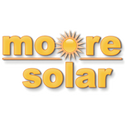Financing Information
We all know that a solar power system is not cheap to purchase and install. Even though tax credits and incentives cover a great majority of the cost, you may still be wondering whether you can finance solar panels. Would that even be a wise decision? Under certain circumstances, it might be a good idea. However, there are also some definite drawbacks to consider before you make such a decision.
When You May Wish to Reconsider Financing:
- Credit check and approval process may delay your purchase
- You will end up paying more for the solar panels due to interest charges over the life of the loan
- There might be loan restrictions on selling your house
- The fine print in a solar panel lease or power purchase agreement (PPA) usually includes onerous requirements or restrictions
- If your credit score is below 640 and/or have no equity in your home
When You Should Consider Financing:
- If you liquidity is low but your monthly payments would be approximately what you would otherwise pay in electricity bills and/or you can comfortably stick to the loan schedule
- You have ample equity in your home and do not plan to sell for the next 12-24 months (or more).
- Financing programs may include maintenance or repair of the solar panels, saving you hassle and expense
- If your liquidity is low, but credit rating is at least 640
O.K., so if you've decided that financing solar panels is a sound decision for you. The following options are available; you may wish to consult with a financial advisor before signing up, however!
- Credit Card. Yep, you can charge them. Before you slap down your plastic, however, make sure your credit limit is high enough and interest rate low. Unlike home equity loans, the interest will not be tax-deductible. Also, make sure that your bank is not adjusting interest rates upwards as some are currently doing.
- HELOC (Home Equity Line of Credit) or Home Equity Loan. I'll be honest. These were a lot easier to obtain several years ago than now. Still, for people that retain ample equity in their homes, this option is generally the favorite for financing solar panels. Often times, the interest on the loan is tax-deductible, but always check with a professional beforehand. Interest rates can vary widely between HELOCs and home equity loans, from 3.5-8%
- Refinancing a First Mortgage. Similar drawbacks and cautions to the notes above, except that you can be certain that interest payments will be tax deductible. The question is, can or should you refinance your mortgage in today's market? This won't be an option for you if you owe more than your home is worth.
- Secured and unsecured financing. Similar drawbacks and cautions to the notes above. Visit some of our financing partners below for more information:
https://www.renovateamerica.com/home-improvement/solar-panels
https://ygreneworks.com/improvements/ https://renewfinancial.com/homeowners - Lease Solar Panels. This is an option mostly beneficial in non-profit and commercial scenarios. Expect a lease term of 7-20 years, and payments that will be at or below expected utility costs. Similar to a car lease, you can purchase the panels at the end of the term, or simply renew the agreement. Check the terms of the lease for any restrictive requirements before signing!
